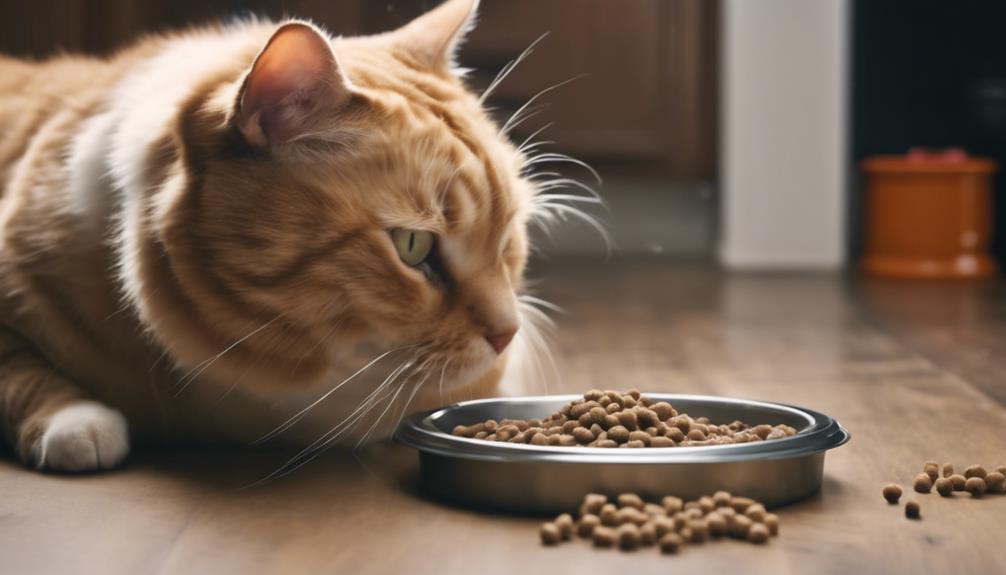Avoid these common mistakes when feeding your cat: overfeeding can lead to health issues like obesity; ensure proper hydration to prevent urinary problems; adjust portion sizes for your cat's age and activity level; offer a variety of foods to prevent deficiencies and keep mealtime interesting; steer clear of feeding human food that can harm your cat's health; watch for food sensitivities to avoid discomfort and allergies; stick to a consistent feeding schedule to maintain your cat's health. Prevent these errors to ensure your cat's well-being and happiness.
Key Takeaways
- Overfeeding leads to weight issues and health problems.
- Ensure cats stay hydrated with fresh water sources.
- Correct portion sizes prevent obesity or malnutrition.
- Introduce dietary variety to avoid deficiencies and boredom.
- Maintain a consistent feeding schedule for optimal health.
Overfeeding

Overfeeding your cat can lead to various health issues and should be avoided to maintain their well-being.
One of the critical consequences of overfeeding is weight management problems. Cats, like humans, can become overweight or obese if they consume more calories than they burn. This can lead to a range of health issues such as diabetes, joint problems, and heart disease.
To prevent overfeeding, it's essential to practice portion control and regulate your cat's feeding frequency. Providing the right amount of food at scheduled times can help prevent overeating and maintain a healthy weight for your feline friend.

